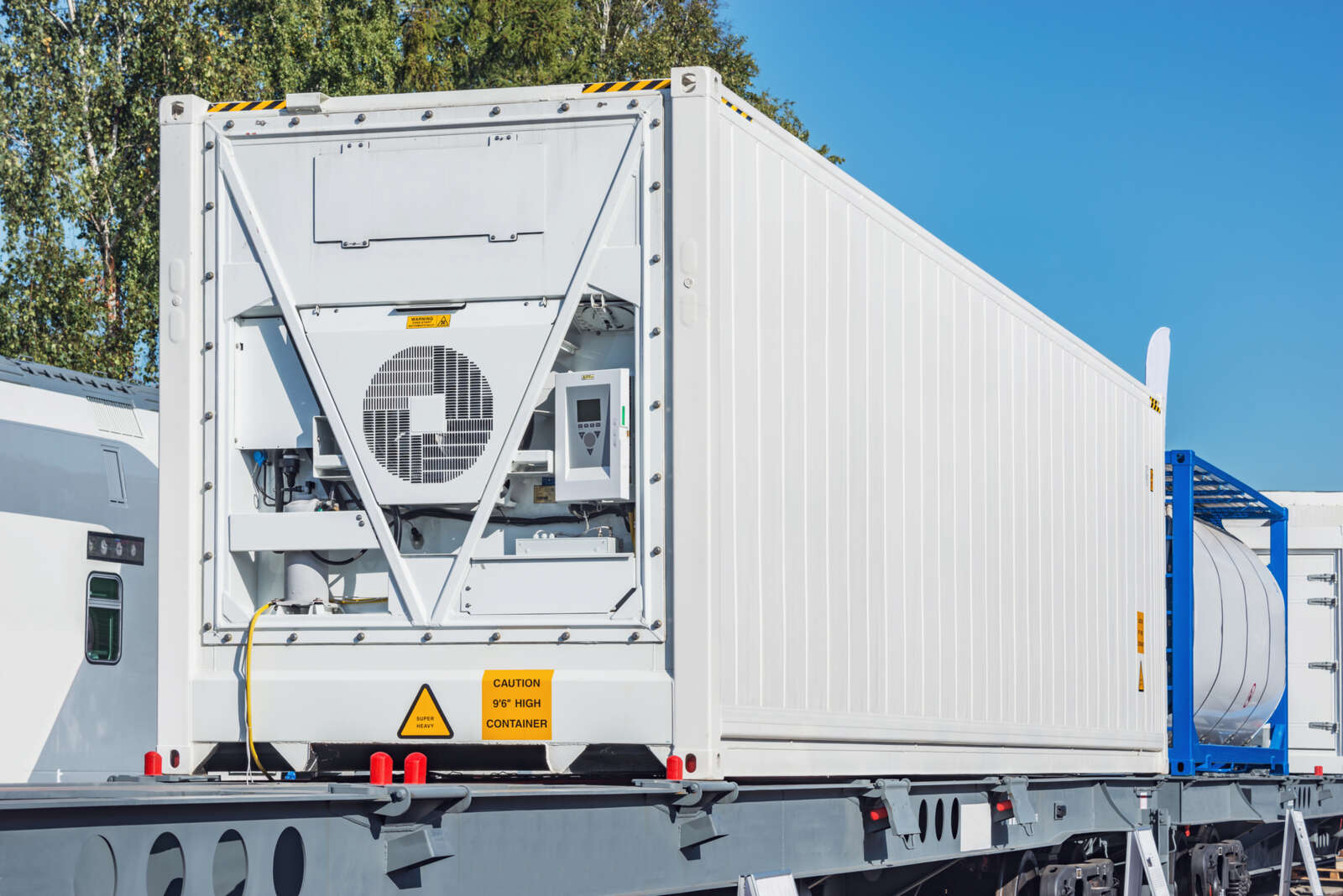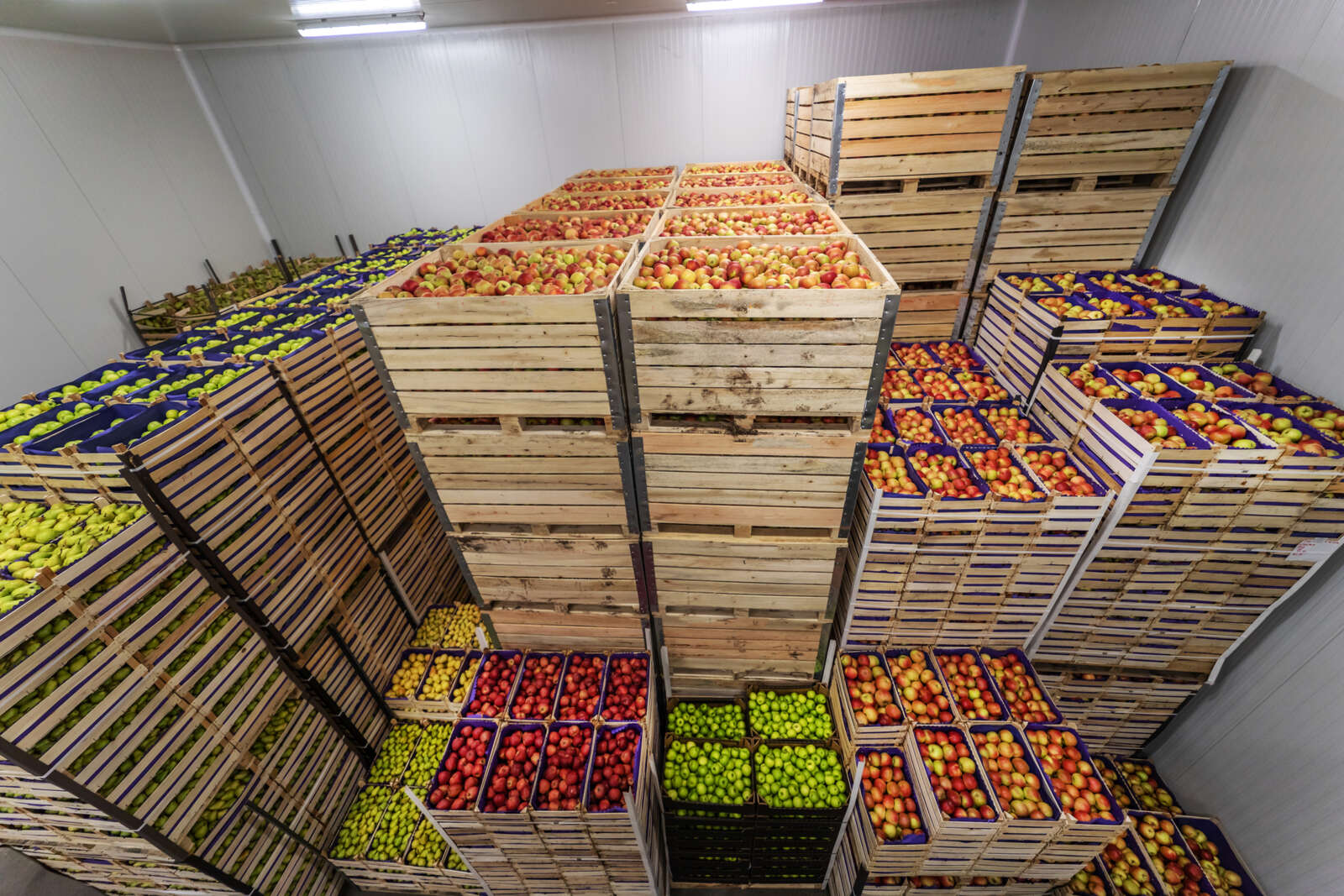Reefer containers play a pivotal role in the seamless transportation of temperature-sensitive goods across the globe. In the dynamic landscape of global freight services, these specialized containers have emerged as indispensable assets for businesses involved in shipping perishable products. However, understanding the intricacies of how reefer containers operate and when they are deployed is essential for maximizing their effectiveness in the shipping industry. In this article, we explore the inner workings of reefer containers, examining their functionality and the diverse scenarios in which they are utilized in shipping operations.

What are reefer containers?
Refrigerated containers, or commonly "reefer" containers or simply RF containers, are essential for transporting temperature-sensitive goods during shipping. Equipped with a built-in refrigeration unit connected to the ship's power supply, these containers closely resemble standard units but serve as oversized refrigerators capable of regulating cargo temperature. This feature makes them perfect for transporting a wide range of perishable items, including pharmaceuticals, meat, fish, fruits, and flowers.
Reefer containers come in three main types: Closed Reefer, Modified/Controlled Atmosphere (MA/CA), and Automatic Fresh Air Management Containers (AFAM).
Closed Reefer
These are the most common type of reefer containers, featuring a sealed enclosure that provides a controlled environment for temperature-sensitive cargo. Closed reefers utilize refrigeration units to maintain the desired temperature and humidity levels throughout the shipment. The integrated heating and cooling unit allows it to be compatible with all seagoing containers meeting ISO Standards.
Modified/Controlled Atmosphere (MA/CA)
MA/CA reefers are equipped with advanced technology to control not only temperature but also the atmosphere within the container. By regulating factors such as oxygen and carbon dioxide levels, MA/CA containers can extend the shelf life of perishable goods and reduce the risk of spoilage during transit.
Automatic Fresh Air Management Containers (AFAM)
AFAM reefers are designed to optimize airflow within the container to ensure consistent ventilation and circulation of fresh air. Unlike MA/CA containers, AFAM containers utilize an array of sensors to precisely adjust the fresh air exchange rate. By dynamically controlling oxygen and carbon dioxide levels, AFAM containers effectively extend the shelf life of the cargo inside. This advanced airflow management system helps prevent the buildup of moisture and maintains product quality, particularly for sensitive goods like fruits, vegetables, and flowers.
How does a reefer container work?
Temperature
Refrigeration in reefer containers relies on airflow, with a generator directing cold air along the floor or side into the container. The T-shaped floor ensures unobstructed airflow beneath the cargo. While a reefer container can maintain or raise the pre-cooled cargo temperature, it cannot lower it. Therefore, the cargo must be brought to the desired temperature before loading. Reefer containers can maintain temperatures between -35°C and +35°C, regardless of external conditions.
Ventilation and Humidity
Proper ventilation is crucial for refrigerated shipping containers. Fruits, vegetables, and plants emit CO2, water, heat, and ethylene, which, if not ventilated, can lead to uncontrolled ripening, aging, and flavor alteration. Humidity control is also essential for cargo preservation. Dehumidifiers maintain optimal moisture levels in reefer containers. While certain newer units may achieve a humidity level of 50%, the conventional standard typically falls within the range of 60% to 85% relative humidity (RH).
Power
To keep track of all these essential aspects, there are microprocessors registering and transmitting data continuously with the help of remote modems. This devise stores all data such as supply air and return air temperature, CO2 levels and humidity, etc.
Applications of reefer containers: when are they used?
Perishable food/products

The primary use of reefer containers is for shipping perishables items such as fruits and vegetables, dairy products, meat and poultry, seafood, juice and beverages, wine, flowers etc.
For instance, the food items you find in the frozen section of your supermarket have been sources from all over the world and most of them have traveled in reefer containers before making it to your local supermarket. Specifically speaking, taking the example of seafood, it spoils easily as you may have experienced visiting a fish food market. That's why utilizing reefer containers for seafood transport is essential. The seafood must maintain exceptional quality to ensure it reaches kitchens as fresh as if it were just harvested from the water.
Pharmaceutical products
Pharmaceutical products often require specialized transportation in reefer containers to maintain precise temperature control. These containers ensure temperatures remain within specific ranges as these products would have different requirements depending on their types such as +2°C to +8°C for chilled pharmaceuticals and below -18°C for some other products. Reefer containers equipped with dehumidifiers can adjust relative humidity levels as needed.
Other specialized items
Transporting movie props and related equipment using reefer containers may initially seem excessive. However, for major movie productions dealing with millions of dollars’ worth of equipment, reefer containers offer invaluable protection. These containers are particularly useful when filming in harsh environments, safeguarding delicate equipment and props from nature's elements. The installation and temperature control features of reefer containers prove indispensable in such scenarios, ensuring the preservation and safe transport of valuable production assets.
Benefits and challenges of using reefer containers
With their versatile design and robust construction, reefer containers offer a range of benefits that streamline logistics processes, reduce handling costs, and ensure the safe delivery of goods to their destination.
- Reefer containers preserve the freshness and quality of perishable goods, pharmaceuticals, and sensitive products during transportation.
- They offer versatility with customizable temperature settings and segmentation for frozen and chilled items within the same unit.
- Partitioning options enable simultaneous storage of frozen and chilled goods, while efficient air circulation prevents premature ripening.
- Reefer containers come in various sizes and dimensions, adaptable for land or sea shipments.
- Built to withstand harsh environments, they ensure reliability and durability throughout the journey.
- They streamline logistics by eliminating the immediate need for cold storage upon arrival at the destination port, reducing handling costs.
- With self-contained refrigeration units, they expedite transit times by eliminating the necessity for additional cold storage facilities.
- Reefer containers' ability to be transported by diverse carriers enhances financial flexibility and offers a faster return on investment compared to specialized reefer ships.
Reefer containers, while essential for transporting temperature-sensitive goods, come with their set of challenges in the shipping industry:
- Power Supply: Maintaining a stable and reliable power supply is crucial for reefer containers to uphold the desired temperature throughout the journey. Any power disruptions can pose risks to the cargo's integrity.
- Temperature Fluctuations: Consistently regulating temperatures within the container can be difficult, particularly during long-distance shipments or exposure to extreme weather conditions.
- Equipment Maintenance: Regular upkeep of reefer container equipment, including refrigeration units and temperature control systems, is vital to prevent breakdowns and ensure optimal performance.
- Cargo Compatibility: Managing various types of cargo with different temperature requirements within the same container presents complexities, requiring careful consideration to prevent cross-contamination and ensure compatibility.
- Monitoring and Control: Effectively monitoring the temperature and condition of cargo throughout the journey is essential but can be challenging, particularly for multi-leg shipments or those involving multiple carriers.
- Cost: Operating reefer containers incurs higher expenses compared to standard containers due to additional equipment and energy requirements. The cost of refrigeration and temperature control significantly impacts overall shipping costs.
- Environmental Concerns: The energy-intensive nature of refrigeration units in reefer containers contributes to environmental impact and carbon emissions. Finding sustainable solutions to minimize energy consumption and reduce environmental footprint remains an ongoing challenge for industry. Addressing these challenges necessitates ongoing innovation, technological advancements, and collaborative efforts across the supply chain to ensure the safe and efficient transportation of temperature-sensitive goods.
In conclusion, reefer containers represent a cornerstone of modern logistics, offering indispensable solutions for the transportation of temperature-sensitive goods across the globe. From perishable foods to pharmaceuticals and specialized items like movie props, these containers provide the necessary infrastructure to maintain precise temperature control, ensuring the freshness and quality of goods throughout their journey. Despite their numerous benefits, challenges such as power supply reliability, temperature fluctuations, and equipment maintenance persist in the shipping industry. However, with ongoing innovation and collaborative efforts, the industry continues to address these challenges, paving the way for safer, more efficient, and environmentally sustainable transportation solutions. As the demand for temperature-controlled shipping grows, reefer containers will undoubtedly remain at the forefront of global freight services, facilitating the seamless movement of goods and fostering economic growth worldwide.
Ship reefer container with us
At Shipping Agents, we understand the critical role that reefer containers play in global trade. Our platform seamlessly connects businesses in need of worldwide freight services with experienced agents who handle all the required formalities. Whether you're shipping perishable goods, pharmaceutical products, or specialized items, our network of reliable agents ensures that your cargo is transported with precision and care. With our expertise and personalized service, we streamline the logistics process, providing peace of mind and ensuring the safe and timely delivery of your valuable cargo. Let us facilitate the seamless arrangement of your shipping needs, ensuring that your valuable cargo is handled with precision and care. With our extensive network of experienced agents, we'll help you navigate the complexities of temperature-controlled shipping, propelling your business towards success in the global marketplace.